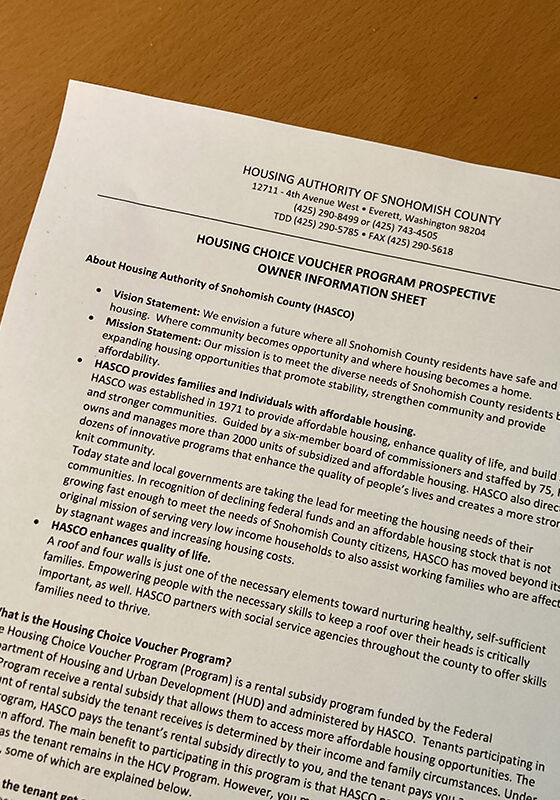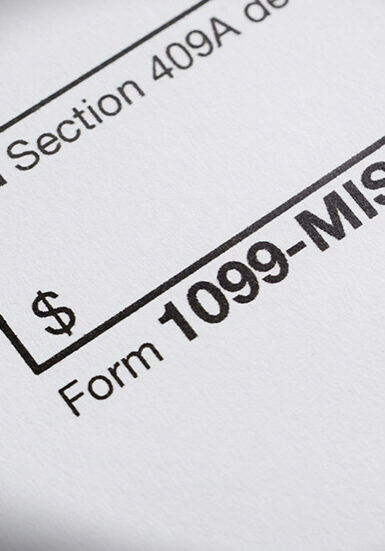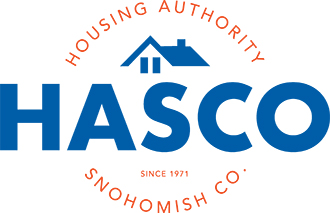Landlord FAQs
Home » Landlord Center »
Answers to Common Questions
When you rent to a Housing Choice Voucher Holder, follow the same basic process you follow for all your tenants—with HASCO’s involvement at several points along the way.
It’s important that you understand HASCO’s responsibilities and requirements, your responsibilities and the tenant’s responsibilities.
The FAQs for Landlords answers questions that might come up at different stages of your relationship with HASCO and your Housing Choice Voucher Holder tenants.
We welcome your questions! Call your tenant’s Housing Specialist or our general information line if you need further clarification. 425-290-8499

What’s the Same. What’s Different.
Renting to Voucher Holders is the same as renting to other tenants in many ways. The landlord performs background checks, can request a deposit and determines what’s in the lease. Review these questions and answers to learn about the similarities and some important differences.
No. Landlords have the responsibility to screen prospective tenants, check references, and take all steps necessary to ensure that prospective tenants meet acceptable rental standards. However, HASCO can provide prospective landlords with the names of current and previous landlords and the tenant’s current addresses (if known).
No. HASCO expects landlords to provide a fully executed lease signed by both the tenant and landlord. The terms of that lease are left to the landlord to negotiate with their tenant. HASCO requires that the terms of the lease follow all Washington State Landlord Tenant Act laws. HASCO has a lease addendum that must be a part of any HCV subsidized lease. This Lease Addendum clarifies the relationships that HASCO has with both the tenant and landlord.
Yes. The landlord decides what amount needs to be collected. However, the amount collected cannot be more than amounts charged to tenants residing in any unassisted units managed by the landlord.
Yes, however, the amount collected cannot be more than advanced amounts collected from tenants residing in unassisted units from the same management team.
Establishing the rent is basically the landlord’s responsibility. However, HASCO is required by HUD to determine three things before approving a lease. First, landlords cannot charge a higher rent for the home being assisted than they charge for a similar unassisted home they manage. Second, the rent must be reasonable in comparison with similar homes in Snohomish County jurisdiction. Third, only at initial lease up, the rent on the unit must be at or below the family’s maximum allowable rent cap.
For Housing Choice Voucher Holders, HASCO permits any length of a lease so long as it is at least one month long, and the length of term complies with the Landlord Tenant Act of Washington. Project Based Voucher units require an initial 12-month lease.
Landlords must follow all Washington State Landlord Tenant Act laws. Landlords are required to send copies of notices to the Housing Specialist at HASCO. These notices ensure that the landlord has followed the proper procedures that lead up to the eviction process. Notices include warning notices, 10-day notices, 3-day notices, 14-day Notices to Pay or Vacate, 20-day end of lease notices, 60-day notices of increase in rent, and 120-day Notices to Vacate for major renovation work.
The landlord must give the tenant and HASCO a 60-day written notice of the proposed new terms. If HASCO and the tenant agree to the terms, the landlord must generate a new lease incorporating the changes. Should HASCO not accept the proposed changes, the landlord may terminate the lease.
When increasing rent, landlords must give HASCO at least a 60-day written notice and tenants at least 30-day written notice of the intent to increase rent.
To request a rent increase, the landlord will complete HASCO’s Rent Increase Form, attach an advance copy of the 30-Day Notice to the tenant of rent increase, and email it to rentincrease@hasco.org.
All rent increases are effective on the first of the month for which the rent increase has been approved.
Detailed instructions can be found in the Landlord Newsletter section on our website in the 1/2023 edition.
Yes. HASCO is required by HUD (U.S. Department of Housing and Urban Development) to review the tenant’s income and household circumstances annually, and to inspect the tenant’s unit for HQS (Housing Quality Standards) at least once every two years. If the HQS inspection fails, the landlord will be sent a letter that explains what must be fixed and when HASCO will be out to re-inspect the unit. If the landlord has questions about the inspection process, they should contact HASCO’s Landlord Liaison at landlord@hasco.org.
HASCO highly recommends that landlords review Washington State Law, HB2578, referred to as the “Source of Income Law” and seek legal advice if they have questions. This law prohibits landlords from discriminating against prospective tenants based solely on their sources of income.
Landlords are required to use the Tenant’s portion of rent (established by HASCO) when calculating if income level requirements have been met.
Example: Landlord requires tenant’s income to be at least 3 times the monthly rent.
Total Rent = $1400
Tenant’s Portion = $200
Tenant would need to verify at least $600 per month in other income.
At admission to the HCV program, HASCO meets with each HCV Participant and conducts a briefing session that emphasizes and educates participants on the importance of being a good tenant. HASCO outlines the tenants’ responsibilities and the obligations to treat the rental home as if it were their own. HASCO performs initial inspections as well as follow up inspections at least once every two years to ensure that the unit meets Housing Quality Standards. Landlords should not rely on the housing authority inspections as their primary inspections. Successful landlords inspect their units at a minimum once per year. Landlords are required to give proper notice to inspect a unit as contained in the Landlord Tenant Act.
You can learn more at the Washington State Department of Commerce website.
Landlords should set their rents at a rate they feel is fair for the current market. At the time of the unit inspection, HASCO will also be performing a “Rent Reasonableness” review and determination. We are required to ensure that rents charged by owners to Housing Choice Voucher (HCV) program participants are reasonable as compared to rents for similar unassisted units in the marketplace. Ensuring rent reasonableness is very important for effective program operations. If HASCO approves rents that are too high, government funds are wasted, and limited housing subsidies are squandered. Alternatively, if rents are approved at levels lower than comparable units in the private market, better owners and higher quality units are discouraged from participating in the program.

Getting Started
Once you have approved a Housing Choice Voucher Holder as a tenant, these answers will help you complete the leasing process.
The prospective tenant will give the landlord a Request for Tenancy Approval (RFTA) form to complete and return to HASCO. The landlord will complete the Landlord section of the RFTA, the Disclosure of Lead-based Paint form, and the W-9. The landlord or participant will submit all completed and signed forms to HASCO. HASCO will contact the landlord, or tenant if they are already living in the unit, to schedule an inspection.
It is important for the landlord to fill out the RFTA completely, especially the utility section describing who pays for which utilities because this section of the RFTA is used for calculating the approved rental amount based on the type of utilities for that unit.
After the unit passes inspection and rent reasonableness, the landlord and tenant sign the lease and Housing Assistance Payment (HAP) Contract and submit them both to HASCO.
Documents can be submitted to HASCO in any three different ways.
- Fax to (425) 290-5618
- Email to the HASCO Housing Specialist
- Drop documents off in person at the drop box located outside HASCO’s office at 12711 4th Ave. W. Everett.
The unit must meet the requirements of decent, safe, and sanitary housing, known as Housing Quality Standards (HQS). The Summary of Housing Choice Voucher (Section 8) Housing Quality Standards is found here. HASCO inspectors will notify the landlord of any items which do not meet HQS if the unit fails inspection. The items that cause the unit to fail must be fixed before HASCO approves the contract. A unit must pass inspection within 30 calendar days of the date of the initial failure to meet HQS.
Note: The HASCO inspector is responsible only for the enforcement of the HQS. HASCO inspectors do not inspect for any other federal, state, or local requirements, and do not, except in the case of an immediate hazard, report the results of the inspection to any other agency.
Yes. By performing a move in and move out inspection, landlords are documenting the condition of the unit at move in and move out. The landlord must insist that the participant sign the documents at move in to certify that the unit was in good condition at move in. At move out, if the unit is damaged, the landlord can obtain a court documented claim. Should the landlord receive a court order, HASCO will require the HCV participant to be in a payback agreement with the landlord. Failure to comply or to enter into a payback agreement would result in the participant/tenant losing their voucher.
HASCO inspects the unit within 10 business days after receiving the RFTA. The average is 3-5 business days.
Once the unit is approved, the HCV participant is free to move in. HASCO payment runs are on the 1st and 15th of the month. HASCO will not release the first check before the landlord and tenant return a signed HAP (Housing Assistance Payment) contract and lease. The landlord may not receive their first check immediately and may have to wait for the next check run. After the first payment, HAP payments will be made on the 1st of every month.
HASCO requires all payments to Landlords be made electronically via direct deposit to a checking or savings account OR to a pre-paid VISA card issued by our partner bank. Landlords have the option to choose between these two methods. To sign up, complete the Direct Deposit/ Automatic Withdrawal Authorization Form. HASCO will send the HAP (Housing Assistance Payment) Contract and release the first payment to you within two weeks after receiving the final lease documents. Thereafter, direct deposit payments will be released on the first business day of each month.

Responsibilities
This section addresses the landlord’s, tenant’s and HASCO’s specific responsibilities.
The landlord is responsible for maintaining the unit in good condition as outlined in the Lease Agreement. The tenant has a responsibility to keep the unit in a clean, orderly, and safe condition, always.
The tenant generally pays between 30% and 40% of their household income toward rent and utilities.
The amount of the HCV rent subsidy is determined by several factors, including: the household income; size of family; the rental housing market costs of the community where the voucher is utilized; the rent of a chosen unit; and the cost of any utilities assigned to the tenant for the unit.
If there are any standard utilities that are not paid for by the landlord, HASCO provides a utility allowance to the Voucher Holder that helps them with their monthly utility costs. This amount is based on average utility costs in Snohomish County. Voucher Holders receive it as a credit to their total monthly payment to their landlord. Voucher holders are responsible for paying their actual utility costs, which may exceed the utility allowance amount.
The tenant is responsible for paying their portion of the rent and the landlord is responsible for acting if the tenant fails to do so.
The landlord must give the tenant and HASCO a 60-day written notice of the proposed new terms. If HASCO and the tenant agree to the terms, the landlord must generate a new lease incorporating the changes. Should HASCO not accept the proposed changes, the landlord may terminate the lease.
When increasing rent, landlords must give HASCO at least a 60-day written notice and tenants at least 30-day written notice of the intent to increase rent.
To request a rent increase, the landlord will complete HASCO’s Rent Increase Form, attach an advance copy of the 30-Day Notice to the tenant of rent increase, and email it to rentincrease@hasco.org.
All rent increases are effective on the first of the month for which the rent increase has been approved.
Detailed instructions can be found in the Landlord Newsletter section in the 01/2023 edition.
As a Washington State landlord, you are prohibited by the Fair Housing Act (federal law) and Washington State Law from discriminating against tenants and prospective tenants based on any of the following categories (called “protected classes”):
- Disability
- Familial status (including children under the age of 18 living with parents or legal custodians; pregnant women and people securing custody of children under 18
- Marital status
- Military/Veteran status (including any individual using a HUD-VASH voucher)
- National origin
- Race or color
- Religion
- Sex
- Sexual orientation and gender identity
- Source of income, including Section 8 vouchers, Social Security, and veteran benefits
Landlords in Washington are no longer able to deny tenancy to an applicant or terminate tenancy based on a household’s use of a Housing Choice Voucher (Section 8) or other subsidy to pay their rent.
In addition, landlords are prohibited from the following based on a household’s source of income: discouraging prospective or current tenants from leasing a unit, misrepresenting unit availability, and marketing units in a way that indicates preferences or restrictions based on an applicant’s source of income. Landlords are required to factor in the household’s rental subsidy when determining that income thresholds are met by applicants and current tenants.
The law also created a landlord mitigation program that provides funds to landlords for costs associated with renting private-market rental units to low-income tenants using rental subsidy programs. Landlords can access the landlord mitigation program for reimbursement for improvements required by the rental subsidy program inspection, lost rental income prior to lease-up, unpaid rent and utilities, and unit damages beyond normal wear and tear.
The following links provide additional information regarding this law.
- Northwest Justice Project’s information sheet
- Text of the law
- Washington State Legislature’s collection of Session Laws (RCW) sections related to the Residential Landlord-Tenant Act
You can learn more at the Washington State Department of Commerce website

Landlord Rights
Like all your tenants, Housing Choice Voucher Holders are subject to the terms of their signed lease agreement.
The lease can be terminated in one of the following ways.
- By agreement of the tenant and landlord.
- By the tenant.
- Upon giving legal notice (20 to 30 days for the end of any month), as specified in their lease agreement.
- Upon the tenant’s death.
- By the landlord.
- During the initial lease period, only after serious or repeated violations of the terms and conditions of the lease by the tenant or for “other good cause.” (See next question)
- After the initial lease period, without cause as of the last day of any month, provided the landlord has given the tenant a written notice of the termination at least 20 days prior to the termination date.
- After the initial lease period, for serious or repeated violations of the terms of the lease by the tenant or for “other good cause” at any time.
- At the end of a lease period if the tenant refuses to accept a new lease.
“Other good cause” creates grounds for termination that are in addition to any serious or repeated violation of the lease itself. The Tenancy Addendum states: “The following are some examples of “other good cause” for termination of the tenancy by the owner:
- Failure by the tenant to accept the offer of a new lease.
- A tenant history of disturbance of neighbors or destruction of property, or of living or housekeeping habits resulting in damage to the unit or property.
- Criminal activity or alcohol abuse that threatens the health, safety or right to peaceful enjoyment of the premises by other residents.
- Criminal activity by the tenant involving crimes of physical violence to persons or property.
- The landlord’s desire to utilize the unit for personal or family use or for a purpose other than use as a residential rental unit.
- Or a business or economic reason for termination of the tenancy (such as sale of the property, renovation of the unit, desire to rent the unit at a higher rental).”
This list of examples is intended as a non-exclusive statement of some situations included in “other good cause,” but shall in no way be construed as a limitation of “other good cause” to a situation not included in the list.
The Tenancy Addendum also states that during the first term of the lease, the owner may not terminate the tenancy for “other good cause” unless the termination is based on something serious that the tenant did or failed to do.
Landlords must follow all Washington State Landlord Tenant Act laws. Landlords are required to send copies of notices to the Housing Specialist at HASCO. These notices ensure that the landlord has followed the proper procedures that lead up to the eviction process, including warning notices, 10-day notices, 3-day notices, 14-day Notices to Pay or Vacate, 20-day end of lease notices, 60-day notices of increase in rent, and 120-day Notices to Vacate for major renovation work.
Voucher Holders search for available units in the open market. Consider advertising online, including on the following websites.
Additional Resources can be found by visiting the following websites.
Washington Landlord Association (Formerly known as The Washington Apartment Association) - Washington Landlord Association - Home (walandlord.org)
Rental Housing Association of Washington (RHAWA) - Home | RHAWA
Washington Multi-Family Housing Association (WMFHA) -Home (wmfha.org)
Landlord Mitigation Program - Landlord Mitigation Program (wa.gov)
Washington State Housing Finance Commission - WSHFC | Washington State Housing Finance Commission | Home Page

HASCO Payments and Tax Information
Look through this section for answers about rent payments and other financial information.
HASCO requires all payments to Landlords be made electronically via direct deposit to a checking or savings account OR to a pre-paid VISA card issued by our partner bank. Landlords have the option to choose between these two methods. To sign up, complete the Direct Deposit/Automatic Withdrawal Authorization Form. HASCO will send the Housing Assistance Payment (HAP) Contract and release the first payment to you within two weeks after receiving the final lease documents. Thereafter, direct deposit payments will be released on the first business day of each month.
You can find IRS form 1099s for the income received from the Housing Choice Voucher program on the Landlord Portal.

